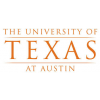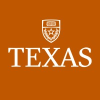Description
The Oden Institute for Computational Engineering and Sciences and the Department of Molecular Biosciences at The University of Texas at Austin have an opening for a tenured or tenure-track faculty position beginning Fall 2025 in the area of Computational Biosciences / Biomedicine.
We are particularly interested in the application of modern AI and scientific machine learning approaches to the study of biological systems.
Areas of interest include, but are not limited to, the development of predictive models of gene expression, first-principles-based biological modeling, and protein biochemistry.
Candidates with expertise in developing scalable computational methods that can be applied across diverse biological contexts are encouraged to apply.
This search is conducted jointly between the Oden Institute and the Department of Molecular Biosciences as one of several faculty lines committed to expanding the development of AI for Science and Scientific Machine Learning at UT Austin.
The successful candidate will have half of their teaching duties in the Oden Institute's Computational Science, Engineering and Mathematics graduate program and half in the Department of Molecular Biosciences.
This position is open to applicants at all ranks : assistant, associate, and full professor, including the possibility of appointment as a chaired professor for candidates with exceptional qualifications.
For more information about the Oden Institute for Computational Engineering and Sciences, please visit https : / / www.oden.
utexas.edu . For more information on the Department of Molecular Biosciences, please visit https : / / molecularbiosci.utexas.edu / .
Qualifications
Candidates must have a Ph.D. degree in Computational or Biological Sciences, or a related field. The successful candidate must be qualified to teach in both the Molecular Biosciences and the Computational Science, Engineering and Mathematics programs at the undergraduate and graduate levels.
The successful candidate will be expected to create undergraduate and graduate learning environments that address the needs of students from a variety of backgrounds, with differing learning styles and abilities.
Further, the successful applicant will be expected to develop an externally sponsored research program, mentor graduate students, collaborate with other faculty, and be involved in service to the university and profession.
Application Instructions
Interested applicants should submit the following materials : (1) a cover letter, (2) curriculum vitae, (3) research statement (max 4 pages), (4) teaching statement (max 2 pages), (5) mentoring statement (max 1 page) and (6) either three letters of reference (candidates for an assistant or associate professor position) or the names of three references (candidates for a full professor position).
Candidates should address their submission to the Computational Biosciences / Biomedicine Faculty Search Committee. Review of applications will begin November 11, 2024, and will continue until an appropriate candidate is identified.
We anticipate virtual interviews in December and in-person campus interviews in January 2025.
The successful candidate will be required to complete an Employment Eligibility Verification form and provide documents to verify identity and eligibility to work in the USA.
A security sensitive background check will be conducted on the applicant selected.
Please address questions to Prof. Robert Moser and Can Cenik, the Computational Biosciences / Biomedicine Faculty Search Committee Chairs ( rmoser@oden.
utexas.edu and [email protected]). For application questions, contact Ruth Park ([email protected]).
Equal Employment Opportunity Statement
The University of Texas at Austin, as an equal opportunity / affirmative action employer, complies with all applicable federal and state laws regarding nondiscrimination and affirmative action.
The University is committed to a policy of equal opportunity for all persons and does not discriminate on the basis of race, color, national origin, age, marital status, sex, sexual orientation, gender identity, gender expression, disability, religion, or veteran status in employment, educational programs and activities, and admissions.


